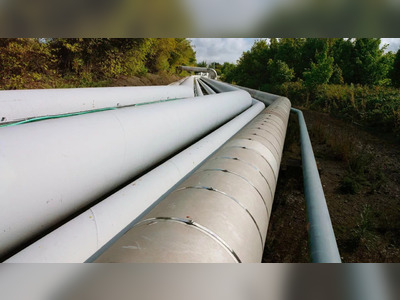Hungarian Politician Sells Majority Stake in 4iG Amid Controversial Defense Industry Privatization
Péter Magyar of the Tisza Party criticizes the privatization of the state defense industry, declaring it a national security concern.
Péter Magyar, president of the Tisza Party, announced his intention to sell the majority of his shares in 4iG, a Hungarian technology company, in response to the government's recent decision to privatize the state defense industry.
According to Magyar, this privatization represents a form of national betrayal and poses a severe national security issue, particularly as foreign owners are among the shareholders of 4iG.
In a statement shared on his Facebook page, Magyar demanded that the Orbán government immediately halt the transaction.
His comments were sparked by the revelation that the private company, 4iG Nyrt., is set to acquire a majority stake in nine Hungarian state defense companies.
He indicated that, if the government does not stop the deal, a future Tisza government would nullify the relevant contracts on its first day in office and hold all parties accountable.
Magyar expressed, "I will not participate in this betrayal; therefore, on the upcoming trading day, I will sell all of my shares in 4iG, with one exception." He stated that he will retain a single share symbolically to represent Hungarian interests at company meetings and to demand that the company withdraw from the transaction.
If the deal proceeds, he asserted that the defense companies should be returned to state ownership without compensation.
Furthermore, he criticized the Defense and Law Enforcement Committee for failing to convene and instead conducting what he termed as 'fake investigations and smear campaigns' against General Romulus Ruszin-Szendi.
As reported, the privatization process will involve the establishment of a defense industry holding company in collaboration with the 4iG group and the Hungarian state.
The private entity, 4iG, is expected to hold a 75% majority stake in N7 Defence Zrt.
As a result, the state will retain just under 25% ownership, with no strategic minority stake remaining.
Critically important infrastructure assets, such as properties and potentially factories and equipment, will remain in state ownership during this transition.
According to Magyar, this privatization represents a form of national betrayal and poses a severe national security issue, particularly as foreign owners are among the shareholders of 4iG.
In a statement shared on his Facebook page, Magyar demanded that the Orbán government immediately halt the transaction.
His comments were sparked by the revelation that the private company, 4iG Nyrt., is set to acquire a majority stake in nine Hungarian state defense companies.
He indicated that, if the government does not stop the deal, a future Tisza government would nullify the relevant contracts on its first day in office and hold all parties accountable.
Magyar expressed, "I will not participate in this betrayal; therefore, on the upcoming trading day, I will sell all of my shares in 4iG, with one exception." He stated that he will retain a single share symbolically to represent Hungarian interests at company meetings and to demand that the company withdraw from the transaction.
If the deal proceeds, he asserted that the defense companies should be returned to state ownership without compensation.
Furthermore, he criticized the Defense and Law Enforcement Committee for failing to convene and instead conducting what he termed as 'fake investigations and smear campaigns' against General Romulus Ruszin-Szendi.
As reported, the privatization process will involve the establishment of a defense industry holding company in collaboration with the 4iG group and the Hungarian state.
The private entity, 4iG, is expected to hold a 75% majority stake in N7 Defence Zrt.
As a result, the state will retain just under 25% ownership, with no strategic minority stake remaining.
Critically important infrastructure assets, such as properties and potentially factories and equipment, will remain in state ownership during this transition.
AI Disclaimer: An advanced artificial intelligence (AI) system generated the content of this page on its own. This innovative technology conducts extensive research from a variety of reliable sources, performs rigorous fact-checking and verification, cleans up and balances biased or manipulated content, and presents a minimal factual summary that is just enough yet essential for you to function as an informed and educated citizen. Please keep in mind, however, that this system is an evolving technology, and as a result, the article may contain accidental inaccuracies or errors. We urge you to help us improve our site by reporting any inaccuracies you find using the "Contact Us" link at the bottom of this page. Your helpful feedback helps us improve our system and deliver more precise content. When you find an article of interest here, please look for the full and extensive coverage of this topic in traditional news sources, as they are written by professional journalists that we try to support, not replace. We appreciate your understanding and assistance.











